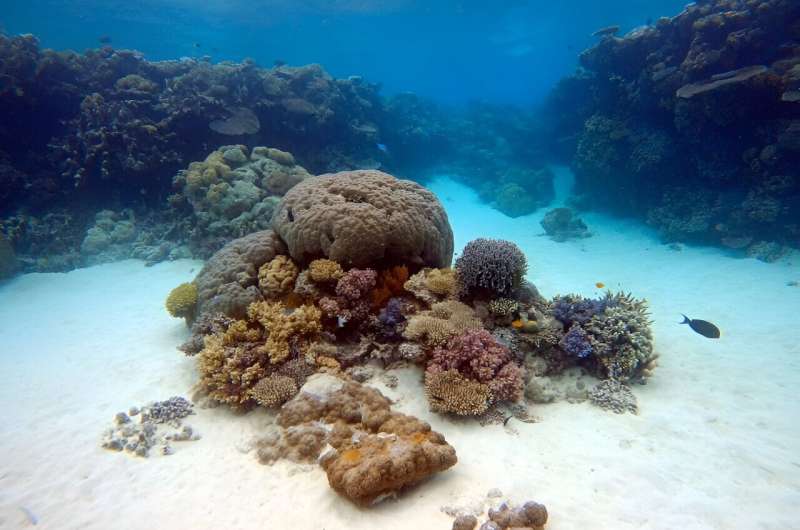
Scientists have found oysters could be very useful in gobbling up nutrient pollution from tropical waterways, including the Great Barrier Reef.
James Cook University’s Professor Jan Strugnell was co-author of a study that examined the effectiveness of using Blacklip Rock Oysters to remove nitrogen, phosphorous, solids and chlorophyll from waterways. The findings are published in the journal Aquaculture Environment Interactions.
“The problem is the nutrient-rich wastewater (e.g. high in nitrogen and phosphorus) can degrade marine environments and this, in addition to costly water treatment practices, has prompted interest into biological filtration methods,” said Professor Strugnell.
She said the organic content of wastewater from aquaculture—such as fecal matter and undigested food—can provide a rich supply of food for oysters and they can also assist in the removal of fine sediments from the water column.
“The tropical Blacklip Rock Oyster has several characteristics that suggest it would be well-suited to bioremediatory applications. These include a large size and fast growth rate, and resilience to fluctuations in temperature and salinity,” said Professor Strugnell.
The scientists tested Blacklip Rock Oysters’ uptake of waste over different temperature ranges and with different densities of the animal.
“The findings highlight the effectiveness of the oyster is closely linked to temperature, with 32°C returning the highest filtration rate for much of a five hour period.
“Interestingly, the Blacklip Rock Oyster was found to have a filtration rate three to five times higher than other frequently cultured oyster species suggesting that it may be well suited to biofiltration roles,” said Professor Strugnell.
She said the findings indicated that 1.20 kg of nitrogen is removed per tonne of harvested oysters.
“In 2020/21 the oyster industry in NSW harvested 5,081 tonnes of oysters. If tropical oyster production in Queensland grew to this scale it would remove approximately 6,098 kg of nitrogen/year and contribute to a 6% reduction in total nitrogen/year from aquaculture farms in the Great Barrier Reef catchment,” said Professor Strugnell.
She said the next step would be farm-based trials to build on the findings from the lab studies.
More information:
B Rennie et al, Filtration rate and bioremediatory potential of the tropical blacklip rock oyster Saccostrea lineage J, Aquaculture Environment Interactions (2024). DOI: 10.3354/aei00477
Citation:
Research show oysters could help clean up the reef through filtration (2024, April 24)
retrieved 25 April 2024
from https://phys.org/news/2024-04-oysters-reef-filtration.html
This document is subject to copyright. Apart from any fair dealing for the purpose of private study or research, no
part may be reproduced without the written permission. The content is provided for information purposes only.






